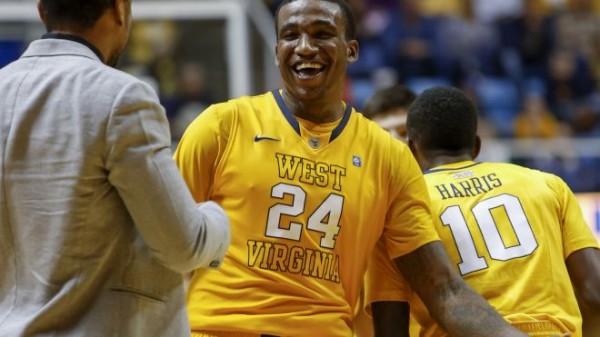Aaric Murray is Slippery Ground For Interested Coaches
Posted by Chris Johnson on July 16th, 2013Chris Johnson is an RTC Columnist. He can be reached @ChrisDJohnsonn.
The details surrounding the departure of former West Virginia forward Aaric Murray were encapsulated in two words by Mountaineers coach Bob Huggins: “mutual agreement.” Seems simple enough, only it’s really not – not when you look back at the marijuana charge Murray was assessed with while sitting out the 2011-12 season following his transfer from La Salle, or the disciplinary issues Murray ran into that forced him to miss a game in December 2012. There is a clear history of crossing the line with college hoops’ now-most high profile free agent forward, and while the offenses themselves don’t condemn Murray’s future in college (or even professional) basketball, the more important question is, will any team be willing to take a chance on him?
This question wouldn’t be as pressing as it is, were Murray not already graduated from and finished with his coursework at WVU, checkpoints that will allow Murray to play for another school this fall per the NCAA’s graduate transfer exemption (provided Murray enrolls in a graduate program not offered at WVU). West Virginia was brutal to watch last season. This was surprising for a couple of reasons: 1) Bob Huggins almost never coaches bad teams; 2012-13 was a glaring exception. 2) And this is more comedic than surprising, but as the Mountaineers toiled away in the lower half of the Big 12 last season, I kept coming back to the comments Huggins made after learning his team had been picked to finish sixth in the Big 12’s preseason coaches poll. “If we’re the sixth-best team in that league then it’s a hell of a league,” the head coach said in October. Part of the reason that placement baffled Huggins, and came off as a slightly pessimistic evaluation for most other observers, was because Murray promised to give WVU some of the hard-nosed Hugginsian grit his teams so routinely infuse into their collective DNA – the stuff that typically makes his teams so physically demanding and brutal to match up with. At La Salle, Murray was a force on both ends: His 106.1 offensive rating on 26.2 percent usage, 11.0 offensive rebounding percentage, 19.0 defensive rebounding percentage and 7.6 block rate in 2011 underscore that basic description.










































